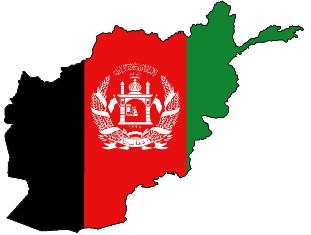
The left-of-center National Security Network has released a statement of “Principles for an Afghanistan Strategy.”
They begin with the following “Realties:”
Afghanistan and the border areas of Pakistan are in a crisis that was years in the making. Under President Bush’s neglect, the situation in Afghanistan grew steadily worse. The Afghan government has grown dysfunctional, the Taliban once again threaten large swaths of the country, al-Qaeda is reconstituted along the border with Pakistan, our allies’ commitment is waning and the Afghan people are losing hope.
National security interests are at stake in Afghanistan. Afghanistan’s continued deterioration would allow al-Qaeda central, which intelligence agencies identify as the greatest national security threat to the United States, to operate with impunity under a resurgent Taliban. It would also risk greater instability in Pakistan, a nuclear-armed state with a struggling civilian government.
Domestic and Afghan constraints severely limit what we can achieve. Americans are justifiably reluctant to redouble efforts in Afghanistan. Afghan history as well as fatigue from the Iraq War and the economic downturn all argue against a US presence that is massive and unlimited in time or scope.
The scale of the challenge demands broad vision but modest objectives. Larger than Iraq, with a population close to 32 million, Afghanistan suffers from one of the world’s lowest development levels, scant economic opportunity, crude infrastructure, and a dependence on the opium trade – interrelated problems that go beyond the near term issue of worsening security. Humanitarian and governance goals to which Afghans and many Americans rightly aspire will be better-served by a smaller-scale effort which can enable local, regional and non-governmental efforts than a massive one which cannot be sustained.
This all strikes me as largely unobjectionable with the odd exception of the first sentence: “Under President Bush’s neglect, the situation in Afghanistan grew steadily worse.”
Goodness knows, the Bush administration deserves blame for many things. But a dysfunctional government in Afghanistan is surely not among them. When Bush took office, the Taliban was running the place and al Qaeda was a government client. Bush ordered an invasion that toppled the Taliban from power and that slowly but surely decimated al Qaeda and its senior leadership. Might things be better in Afghanistan had we not invaded Iraq and devoted more resources to the mission? Perhaps. We’ll obviously never know. But things were horrendously bad in Afghanistan in September 2001 and better now on most measures that matter.
One could quibble with some of the rest, notably the idea that Afghanistan rather than Pakistan is the key to defeating al Qaeda, but it accurately reflects Establishment consensus.
The recommendations section of the paper, entitled “Principles: The ‘How’ and ‘For What?’” is worth a read. Nothing overly controversial is contained in the list, which isn’t surprising given that it’s a consensus document. Indeed, there’s substantial overlap with the Atlantic Council’s “Saving Afghanistan: An Appeal and Plan for Urgent Action,” which was released thirteen months ago. The problem is one of turning expert consensus into political will.
The closing recommendation is both obvious and right:
Define success through clear, measurable and realistic objectives. Any strategy must make a clear break with the past by announcing our intentions and objectives. It must place direct responsibility for Afghanistan’s future with its people and their government. It must clearly differentiate between many goals we might like to work toward in the long term and the relatively few foundational steps that the US must take along with its allies to help Afghanistan in the short term.
Again, everyone from George W. Bush to Barack Obama to Jim Jones to David Petraeus already understands this. But our policy has nonetheless been doomed to failure by a definition of success that simply isn’t in accord with the possibilities on the ground.
James Joyner is managing editor of the Atlantic Council.
Image: STOCK%20-%20Afghanistan.jpg
